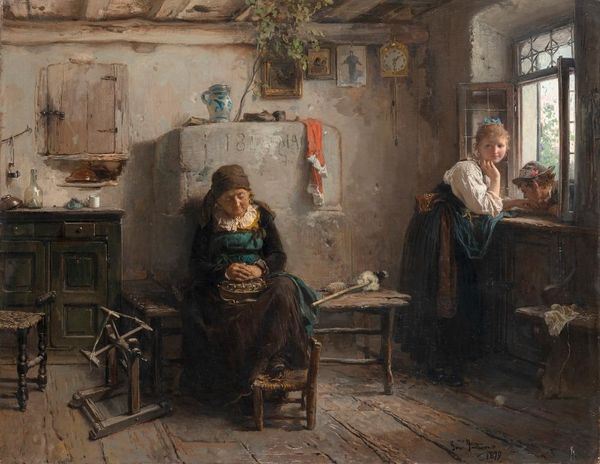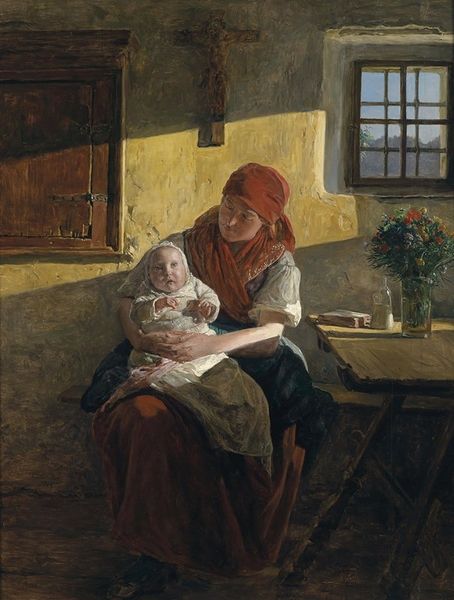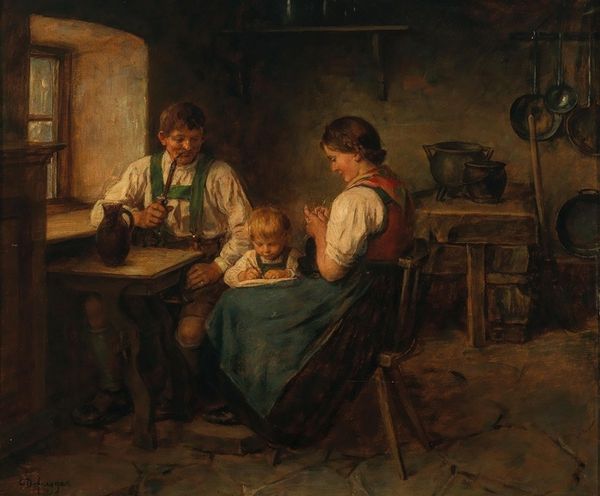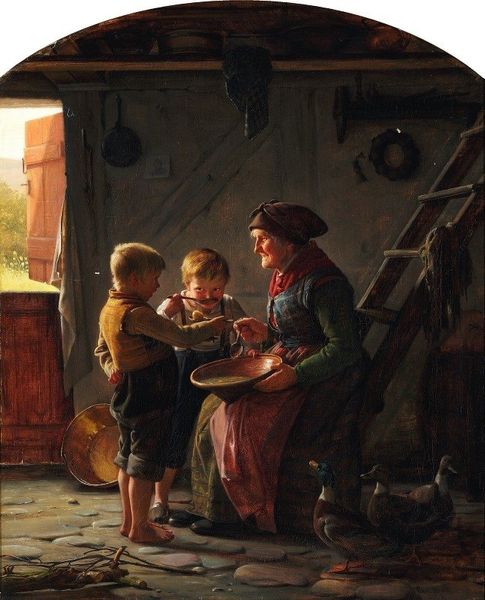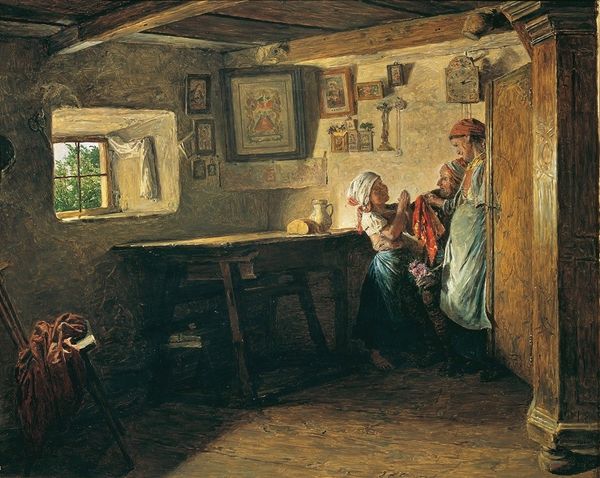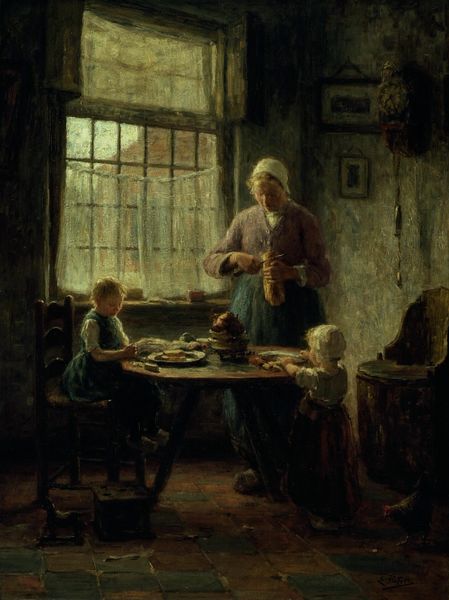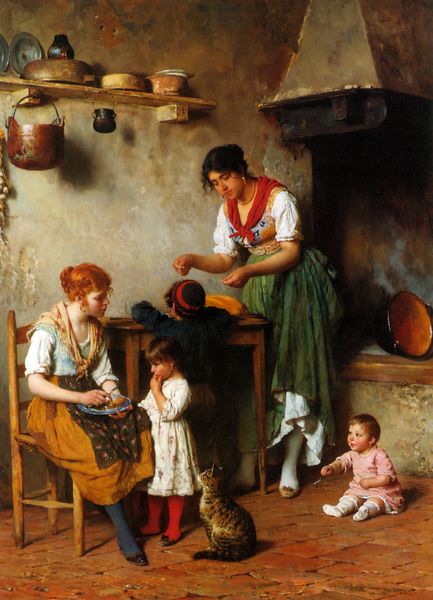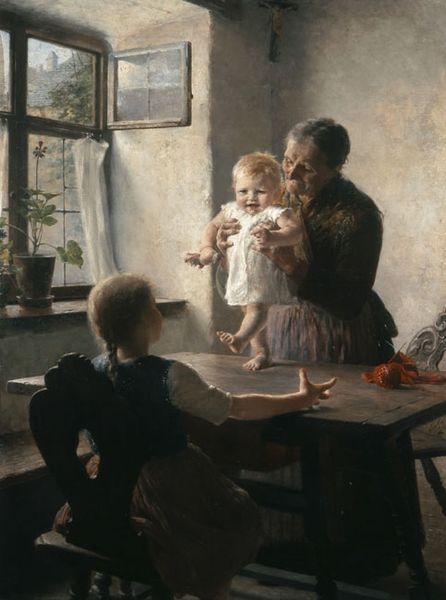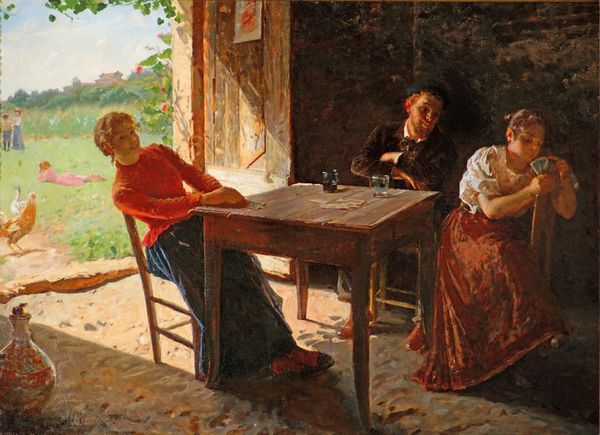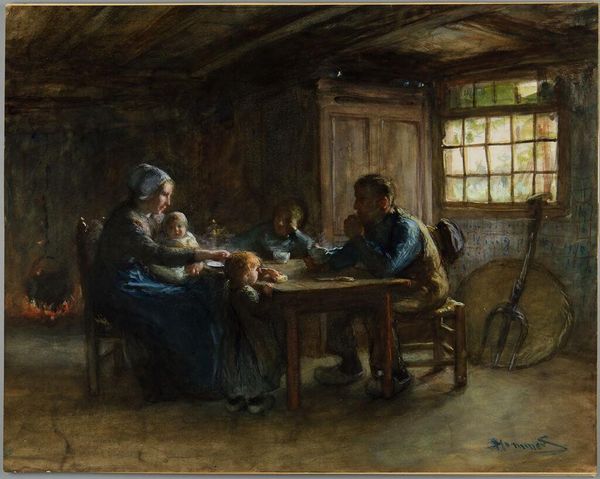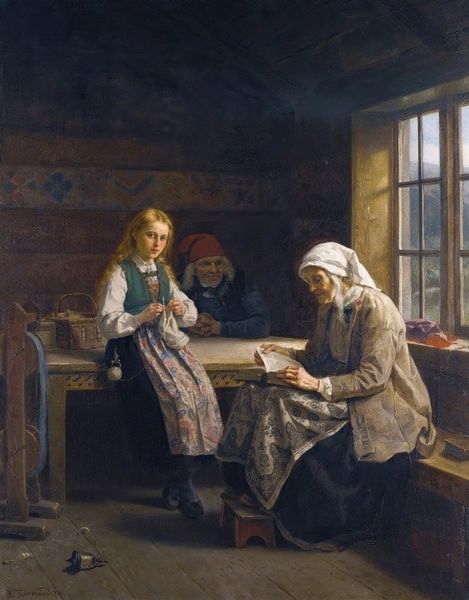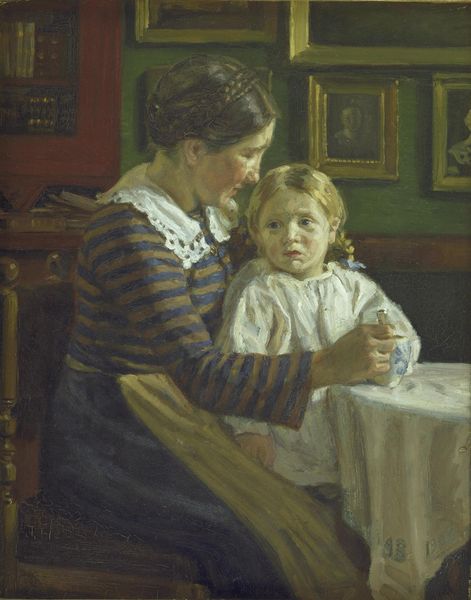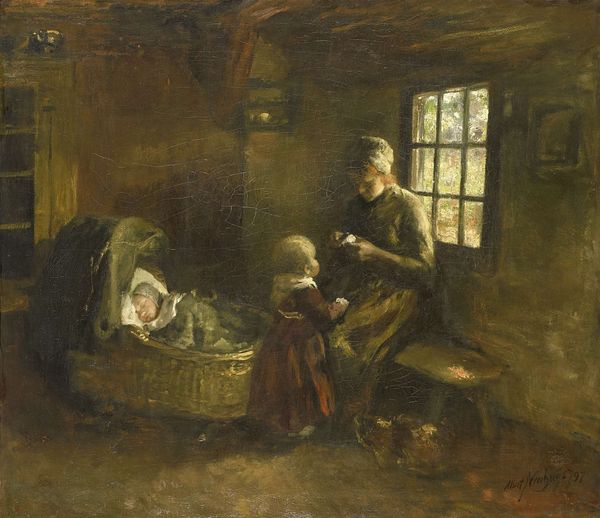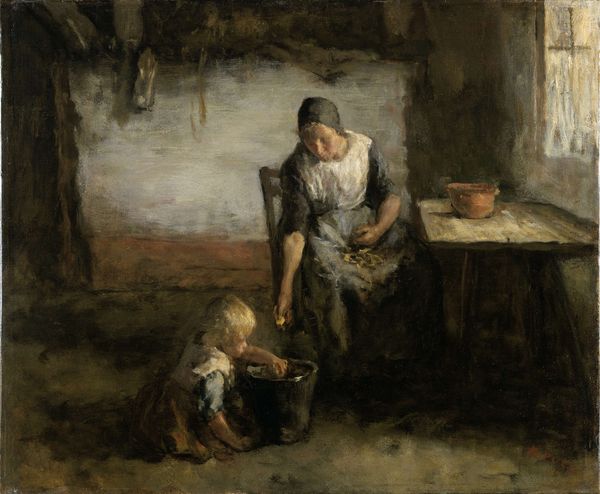
painting, oil-paint
#
portrait
#
narrative-art
#
painting
#
oil-paint
#
coloured pencil
#
romanticism
#
genre-painting
#
history-painting
#
academic-art
#
realism
Copyright: Public domain
Editor: Here we have "Grace," an oil painting by Eduard von Gebhardt. It portrays a mother and child in what looks like a humble domestic setting. It feels very… traditional, almost idealized. What do you see in this piece? Curator: What interests me most is the materiality within this representation of apparent piety. Look at the worn textures of the wood paneling, the rough weave of the mother’s skirt, the simplicity of the tableware. What kind of labor went into making this room and those garments? How does the artist utilize light to draw our eye to those material aspects? Editor: So, you’re less interested in the religious aspect and more in…the stuff? Curator: Exactly. Consider how the painting itself becomes a commodity. Oil paints, canvas, brushes - these were expensive. Who was the target audience for such a piece, and what statement were they attempting to make through its purchase? It is not merely about "Grace," but the means of representing that idea and who had access to them. Editor: That's a really different way to look at it! I was so focused on the story. Curator: Stories are important, but whose stories are told and *how* they are told depends heavily on the material circumstances of artistic production. Also note that Christ is centered within this production: who benefited materially from that image, how, and why? The wood from the cross, the gold paint of His body, were luxury commodities themselves. Editor: I see what you mean. The painting itself is also an object with its own story. Thank you for sharing your perspective! Curator: Indeed, it all points to the cycle of creation, labor, and consumption which is the very underpinning of artistic practice, from start to finish.
Comments
No comments
Be the first to comment and join the conversation on the ultimate creative platform.
